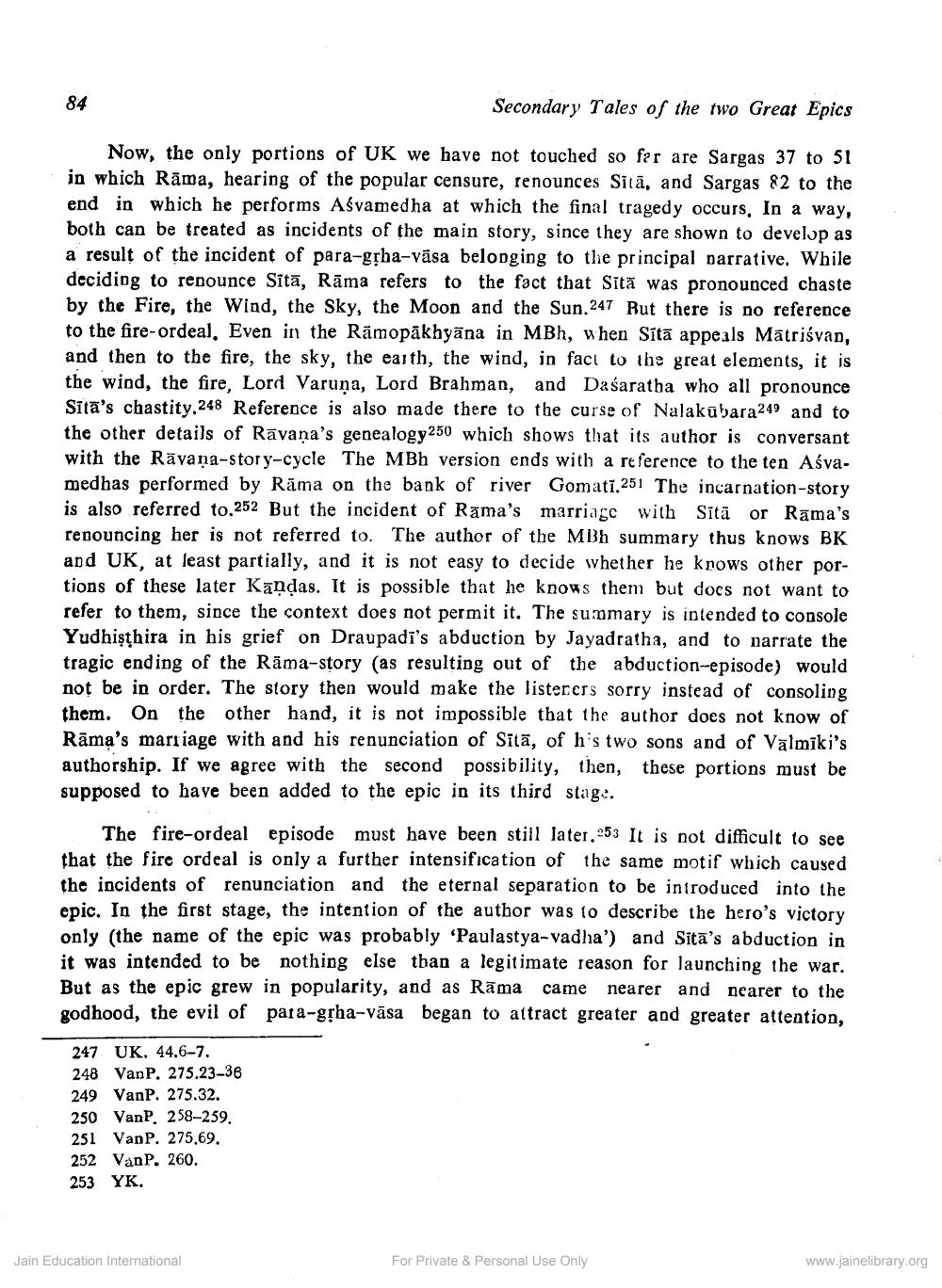________________
84
Secondary Tales of the two Great Epics
Now, the only portions of UK we have not touched so far are Sargas 37 to 51 in which Rāma, hearing of the popular censure, renounces Sitā, and Sargas 82 to the end in which he performs Aśvamedha at which the final tragedy occurs, In a way, both can be treated as incidents of the main story, since they are shown to develop as a result of the incident of para-gļha-vāsa belonging to the principal parrative. While deciding to renounce Sītā, Rāma refers to the fact that Sitā was pronounced chaste by the Fire, the Wind, the Sky, the Moon and the Sun.247 But there is no reference to the fire-ordeal. Even in the Rāmopākhyāna in MBh, when Sītā appeals Mātriśvan, and then to the fire, the sky, the earth, the wind, in fact to the great elements, it is the wind, the fire, Lord Varuņa, Lord Brahman, and Dasaratha who all pronounce Sita's chastity.248 Reference is also made there to the curse of Nalakūbara 249 and to the other details of Rāvana's genealogy250 which shows that its author is conversant with the Rāvana-story-cycle The MBh version ends with a reference to the ten Aśva. medhas performed by Rāma on the bank of river Gomatí.251 The incarnation-story is also referred to 252 But the incident of Rama's marriage with Sitā or Rāma's renouncing her is not referred to. The author of the MBh summary thus knows BK and UK, at least partially, and it is not easy to decide whether he knows other portions of these later Kandas. It is possible that he knows them but does not want to refer to them, since the context does not permit it. The summary is intended to console Yudhisthira in his grief on Draupadi's abduction by Jayadratha, and to narrate the tragic ending of the Rāma-story (as resulting out of the abduction-episode) would not be in order. The story then would make the listerers sorry instead of consoling them. On the other hand, it is not impossible that the author does not know of Rāma's marriage with and his renunciation of Sītā, of his two sons and of Vālmīki's authorship. If we agree with the second possibility, then, these portions must be supposed to have been added to the epic in its third stage.
The fire-ordeal episode must have been still later.253 It is not difficult to see that the fire ordeal is only a further intensification of the same motif which caused the incidents of renunciation and the eternal separation to be introduced into the epic. In the first stage, the intention of the author was to describe the hero's victory only (the name of the epic was probably 'Paulastya-vadha') and Sitā's abduction in it was intended to be nothing else tban a legitimate reason for launching the war. But as the epic grew in popularity, and as Rāma came nearer and nearer to the godhood, the evil of para-gļha-vāsa began to attract greater and greater attention,
247 UK, 44.6-7. 248 VanP. 275.23-36 249 VanP. 275.32. 250 VanP. 258-259. 251 VanP. 275.69. 252 VanP. 260. 253 YK.
Jain Education International
For Private & Personal Use Only
www.jainelibrary.org




